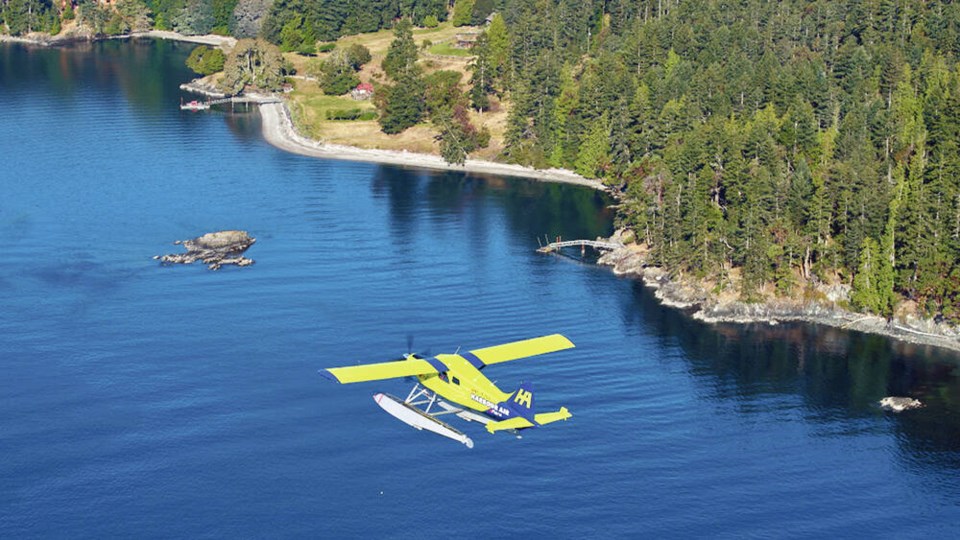Harbour Air completed the first point-to-point test flight using its all-electric plane on Thursday, calling the journey from Richmond to Sidney a “historic flight.”
The e-Beaver, a modified de Havilland Beaver aircraft with electric engine powered by batteries, flew 72 kilometres in 24 minutes.
The aircraft left Harbour Air’s terminal on the Fraser River, next to Vancouver International Airport, and landed in Patricia Bay, adjacent to VIctoria International Airport.
“This is a major milestone in the advancement of all-electric commercial flights,” the company said in a statement.
“Take-off was at 0812 with ample reserve power upon landing at 0836.”
Kory Paul, Harbour Air’s vice-president of flight operations and one of the company’s test pilots, called it a “historic flight” and said it went exactly as planned. “Our team, as well as the team at magniX and Transport Canada, are always closely monitoring the aircraft’s performance and today’s flight further proved the safety and reliability of what we have built,” Paul said.
MagniX is an electric aircraft motor manufacturer headquartered in Everett, Washington. It started working with Harbour Air in 2019.
The ePlane will stay in Victoria to support Harbour Air’s partnership with the B.C. Aviation Museum, which is hosting an open house Saturday from 10 a.m. to 4 p.m., before returning to Harbour Air’s maintenance facility at YVR.
In December 2019, Harbour Air chief executive Greg McDougall flew the 750-horse-power, electric-powered Harbour Air float plane over the Fraser River.
The short test flight of the six-passenger, DHC-2 de Havilland Beaver from Harbour Air’s terminal in Richmond was the world’s first all-electric commercial aircraft flight.
Harbour Air has said it hopes to achieve Transport Canada certifications to start carrying passengers by electric seaplane as early as next year.
The company said it is uniquely positioned to be the leader in commercial electric flight, citing the small sizes of its single-engine aircraft and its short routes, usually 30 minutes or less.
It plans to eventually electrify its entire fleet of de Havilland Beaver and Otter aircraft.
Harbour Air’s Going Electric page is at harbourair.com/corporate-responsibility/goingelectric/ .



